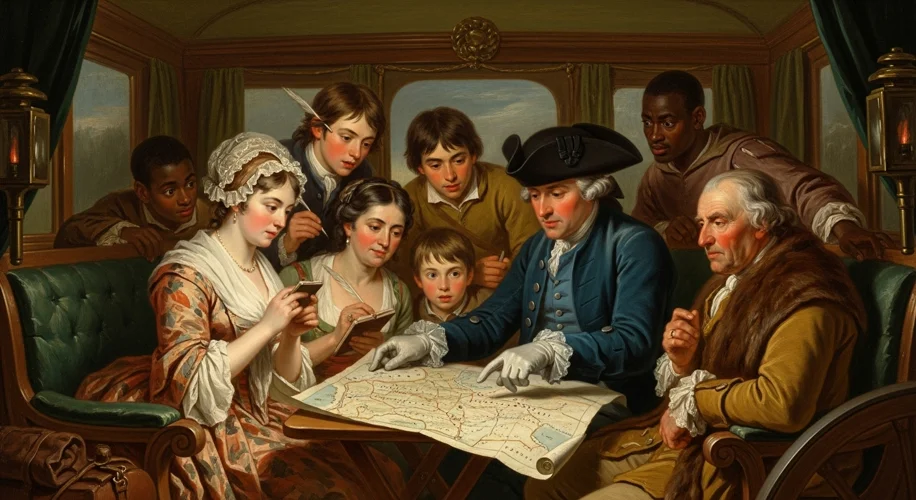It’s July 29th, 2025, and I’m currently nestled in a small café in Vienna, poring over some rather fascinating 18th-century travel diaries. As anyone who’s ever joined a group tour knows, the company you keep can make or break the experience. It got me thinking – was this a concern for travelers centuries ago?
In the 18th century, travel for pleasure or study, especially across Europe, was a far cry from today’s organized tours. It was often a necessity for the wealthy, part of the ‘Grand Tour,’ or undertaken for diplomatic, religious, or even military reasons. Unlike our modern coach tours where your fellow travelers are often pre-selected, or at least meet you at a designated point, 18th-century journeys were frequently more organic, and certainly more fraught with peril.
Consider a group traveling together for safety, perhaps merchants moving goods or a contingent of scholars heading to a renowned university. The ‘vibe’ of the group wasn’t just about pleasant conversation; it was about shared risk. A quarrelsome companion could endanger everyone, not just by causing delays, but by creating distrust or attracting unwanted attention. Primary sources from the period often mention the importance of choosing traveling companions wisely. Diaries might detail disputes over provisions, navigation, or even simply differing paces, all amplified by the close quarters and the inherent stresses of long-distance travel before reliable communication or comfortable transport.
My research has uncovered accounts where groups were formed out of necessity. Think of a few families pooling resources to hire a carriage and a driver for a journey. Each family brought their own social dynamics, their own expectations. The importance of shared connections, as mentioned in my brief, was paramount. These weren’t just fellow tourists; they were temporary communities. A successful journey often depended on maintaining social harmony. This meant being mindful of the ‘vibe’ – ensuring that differing opinions or habits didn’t escalate into serious conflict.
It’s fascinating to consider the parallels. While we worry about someone hogging the conversation or having very different interests, 18th-century travelers were concerned about shared expenses, the reliability of their companions in a crisis, and maintaining a respectable appearance to avoid drawing the wrong kind of attention. The ‘social contract’ of a group tour was perhaps more intensely felt when the alternatives were so much riskier.
So, the next time you find yourself on a tour, perhaps take a moment to appreciate the relative ease with which we now gather. And maybe, just maybe, give a thought to those 18th-century travelers who had to be just as discerning about their companions as we are today, but with much higher stakes.

